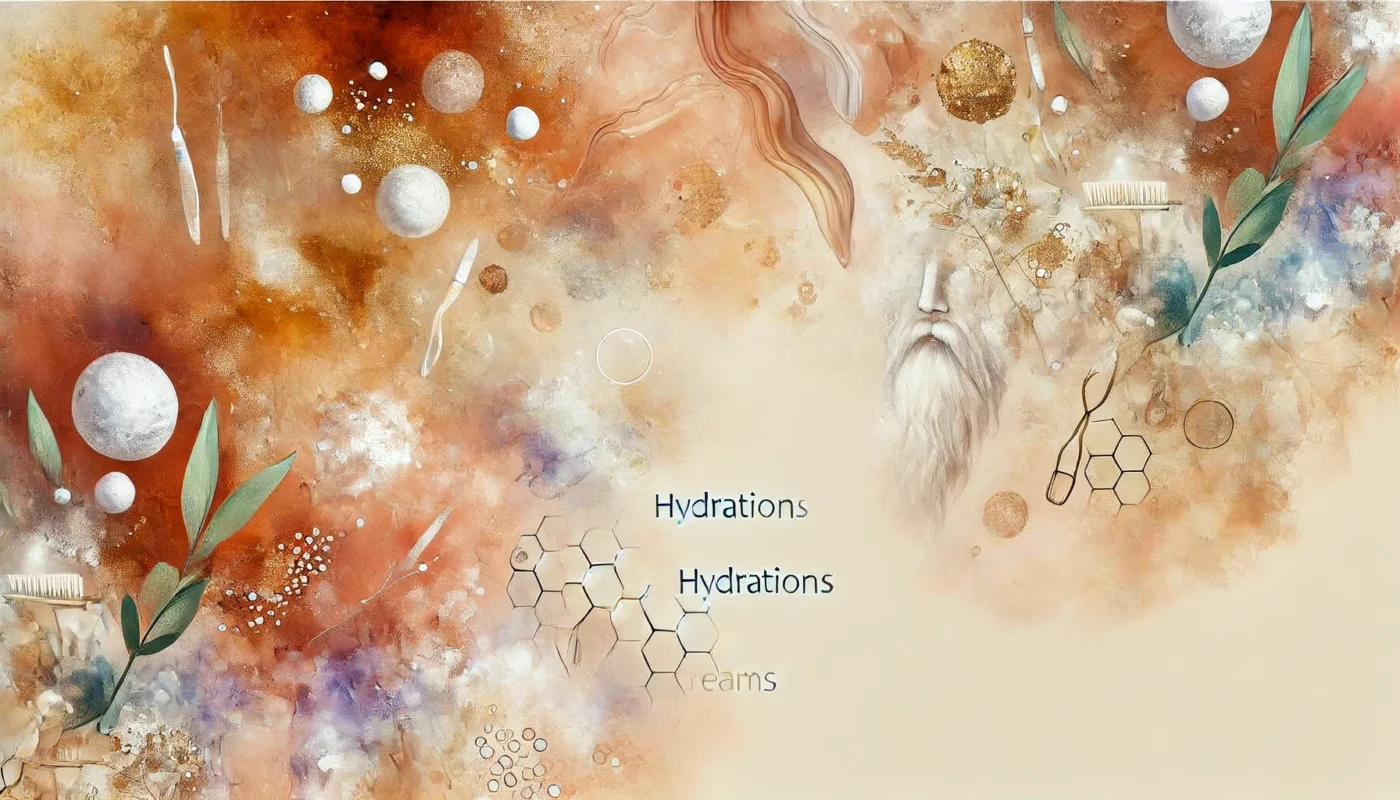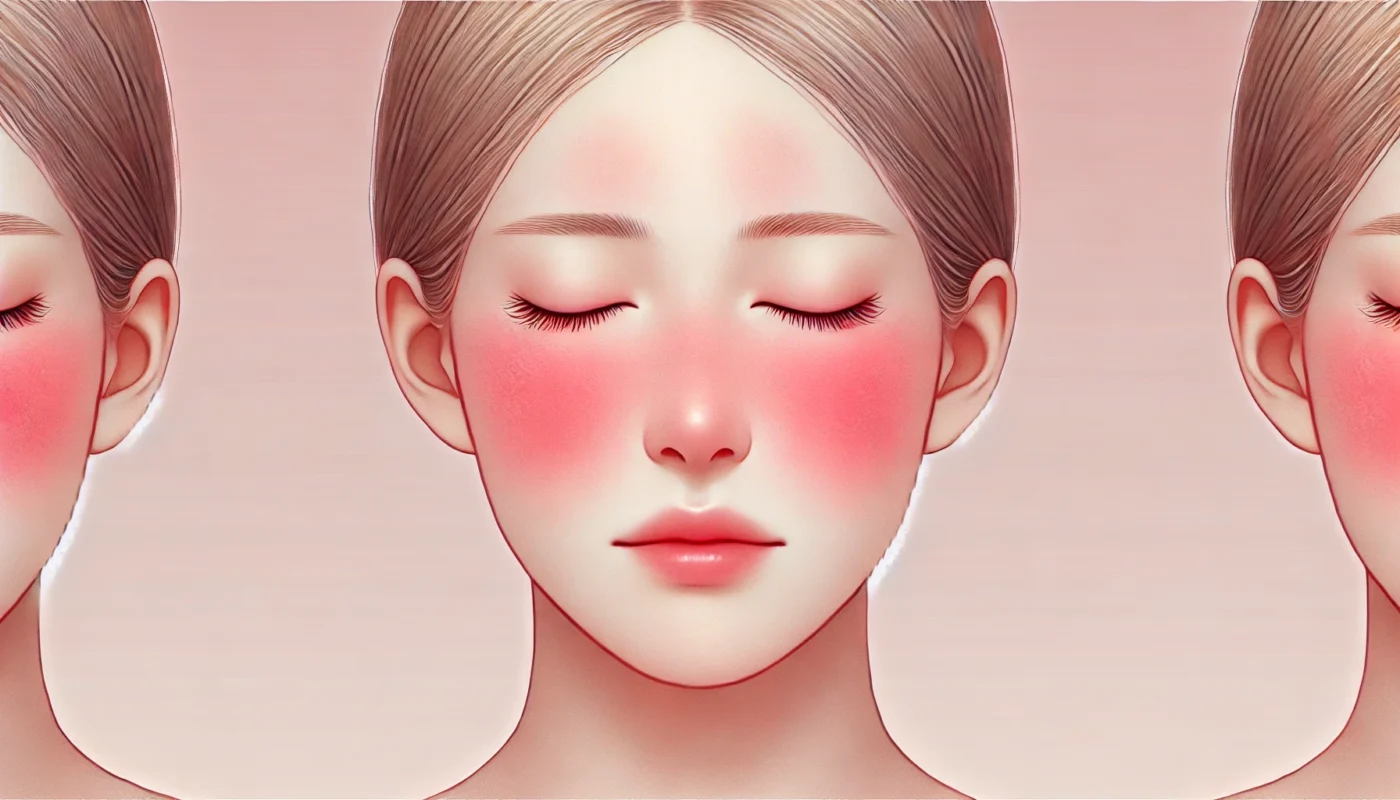Facial inflammation is a natural immune response to injury, infection, or irritation. It is characterized by swelling, redness, warmth, and sometimes pain or discomfort. The underlying physiological process involves the dilation of blood vessels, increased blood flow, and the accumulation of immune cells at the affected site. While inflammation is a protective mechanism, excessive or chronic inflammation can lead to tissue damage and contribute to various health issues.
You may also like: 20 Powerful Anti-Inflammatory Foods
The Immune Response
The immune system’s response to perceived threats is a complex process. When the body detects an injury or pathogen, it sends white blood cells and other immune components to the site of injury, creating a cascade of biochemical reactions. These reactions lead to the production of inflammatory mediators such as cytokines and prostaglandins, which cause the characteristic redness and swelling. This response is designed to contain the threat and begin the healing process.
Physiological Changes
During inflammation, the affected area becomes warm due to increased blood flow. This is a direct result of vasodilation, where blood vessels widen to allow more immune cells to reach the site of injury or infection. The swelling is primarily due to the accumulation of fluid and immune cells, which can sometimes compress nerves, causing pain or discomfort. These physiological changes are essential for healing but can be problematic if they persist.
Chronic Inflammation
Unlike acute inflammation, which is a short-term response to injury or infection, chronic inflammation is long-lasting and can contribute to various diseases. Prolonged inflammation can lead to tissue damage and has been linked to conditions such as heart disease, diabetes, and autoimmune disorders. Understanding the transition from acute to chronic inflammation is crucial in managing and preventing these health issues.
Common Causes of Facial Inflammation
Understanding the common causes of facial inflammation can help in effectively managing and preventing it. Here are some prevalent triggers:
Physical Injury
Physical trauma, such as a blow to the face, can cause localized swelling and inflammation. The body’s immediate response to injury is to initiate inflammation to protect and heal the damaged tissue. Even minor injuries, such as cuts or abrasions, can lead to noticeable facial swelling as the body works to repair itself.
Infections
Infections, whether bacterial, viral, or fungal, can trigger an inflammatory response resulting in a swollen face. For example, a sinus infection can cause significant facial swelling due to the proximity of the sinuses to the facial bones and tissues. Dental infections, such as an abscessed tooth, can also lead to localized facial inflammation.
Allergic Reactions
Exposure to allergens such as pollen, dust, or certain foods can lead to facial swelling and discomfort. This allergic response is a result of the immune system overreacting to harmless substances, releasing histamines that cause inflammation and swelling. Skin contact with allergens, such as in cosmetics, can also trigger localized facial inflammation.
Dermatological Conditions
Conditions like acne, rosacea, and eczema often involve inflammatory processes that affect the face. Acne, for instance, is characterized by clogged pores that become inflamed due to bacterial infection. Rosacea causes persistent redness and swelling due to abnormal vascular responses, while eczema results in itchy, inflamed skin patches.
Autoimmune Disorders
Diseases such as lupus and rheumatoid arthritis can cause systemic inflammation, including in the facial area. In lupus, the immune system mistakenly attacks healthy tissues, leading to inflammation and the characteristic “butterfly” rash on the face. Rheumatoid arthritis can cause inflammation around the jaw joints, leading to facial pain and swelling.
Holistic Approaches to Reducing Facial Inflammation
Adopting a holistic approach to managing facial inflammation can help reduce symptoms and promote overall health. These strategies focus on dietary changes, herbal remedies, and lifestyle modifications.
Dietary Interventions
A key component in managing facial inflammation is a balanced diet rich in anti-inflammatory foods. Incorporate the following into your meals:

Omega-3 Fatty Acids
Found in fatty fish, flaxseeds, and walnuts, omega-3s possess potent anti-inflammatory properties. These essential fatty acids help reduce the production of inflammatory molecules and have been shown to improve symptoms in conditions like acne and eczema. Regular consumption of omega-3-rich foods can contribute to overall skin health.
Antioxidant-Rich Foods
Berries, leafy greens, and nuts are high in antioxidants, which help neutralize free radicals and reduce inflammation. Antioxidants protect skin cells from damage caused by oxidative stress, which is a key contributor to chronic inflammation. Including a variety of colorful fruits and vegetables in your diet can enhance your body’s ability to fight inflammation.
Turmeric and Ginger
Both spices contain compounds that have been shown to decrease inflammation. Curcumin, the active ingredient in turmeric, has powerful anti-inflammatory and antioxidant effects. Ginger contains gingerol, which provides similar benefits. Consider adding them to your meals or taking them as supplements to help manage inflammation naturally.
Herbal Remedies and Supplements
Several herbs and supplements have shown promise in reducing inflammation:
Boswellia
Known for its anti-inflammatory effects, Boswellia extract can help alleviate swelling and discomfort. This herb, also known as Indian frankincense, inhibits the production of inflammatory mediators. It has been used traditionally to treat inflammatory conditions and is available in various supplement forms.
Bromelain
An enzyme found in pineapples, bromelain has anti-inflammatory and analgesic properties. It can help reduce swelling and pain, especially following surgery or injury. Bromelain supplements are commonly used to support recovery and manage inflammatory conditions.
Quercetin
A flavonoid with antioxidant and anti-inflammatory effects, quercetin may help reduce symptoms of inflammation. Found in foods like apples, onions, and green tea, quercetin stabilizes mast cells and reduces the release of histamines. It is often used in supplement form to support allergic responses and inflammation.
Lifestyle Modifications
Implementing certain lifestyle changes can significantly impact inflammation levels:
Hydration
Staying well-hydrated helps maintain skin elasticity and reduces inflammation. Water is essential for flushing out toxins and supporting cellular functions. Aim to drink at least eight glasses of water daily to keep your skin and body well-hydrated.
Stress Management
Chronic stress can exacerbate inflammation. Practices like yoga, meditation, and deep breathing can help manage stress levels. These activities promote relaxation and reduce the production of stress hormones, which can trigger inflammatory responses.
Adequate Sleep
Ensure you get 7-9 hours of quality sleep per night to support the body’s healing processes. Sleep is vital for repairing tissues and regulating immune function. Poor sleep can increase inflammation and worsen existing conditions, making it crucial for overall health.

Alternative Therapies for Facial Inflammation
Alternative therapies can complement traditional treatments and offer additional relief from facial inflammation. Here are some effective options:
Acupuncture
Acupuncture, an ancient Chinese practice, involves inserting thin needles into specific points on the body to stimulate energy flow and promote healing. Research suggests that acupuncture can reduce inflammation and alleviate pain by modulating the immune response and releasing endorphins. Regular sessions can contribute to long-term inflammation management.
Cold Therapy
Applying cold compresses to the affected area can help reduce swelling and numb pain. Cold therapy constricts blood vessels, decreasing blood flow and inflammation. Use a clean cloth or ice pack wrapped in a towel for 10-15 minutes at a time. This simple technique can provide immediate relief and is particularly effective for acute inflammation.
Facial Massage
Gentle facial massage can improve lymphatic drainage, reduce fluid buildup, and alleviate swelling. Using upward and outward strokes, massage the face with your fingertips or a jade roller for 5-10 minutes daily. This practice not only helps reduce inflammation but also promotes relaxation and improves skin tone.
When to Seek Medical Attention
While most cases of facial inflammation can be managed with at-home remedies and lifestyle modifications, there are instances when medical intervention is necessary. Seek medical attention if:
Severe or Sudden Swelling
If the swelling is sudden or severe, it may indicate a serious underlying condition that requires prompt evaluation. Conditions such as angioedema or anaphylaxis can cause rapid facial swelling and are medical emergencies.
Breathing or Swallowing Difficulties
Difficulty breathing or swallowing can accompany severe allergic reactions or infections. These symptoms require immediate medical attention to prevent complications and ensure your safety.
Fever or Signs of Infection
If inflammation is accompanied by fever, pus, or other signs of infection, it’s crucial to seek medical care. Infections can spread quickly and may require antibiotics or other treatments to resolve effectively.
Lack of Relief from Over-the-Counter Treatments
If over-the-counter treatments fail to provide relief, a healthcare professional can offer alternative solutions. Persistent inflammation may require prescription medications or further diagnostic testing to identify the underlying cause.

Conclusion
Facial inflammation, though often uncomfortable, is typically a manageable condition with the right approach. By understanding its causes and implementing holistic and alternative treatments, you can effectively reduce inflammation and promote overall facial health. Remember to consult with a healthcare professional if symptoms persist or worsen, and incorporate these strategies into your daily routine for optimal wellbeing.
In your journey to better health, blending dietary adjustments, herbal remedies, and alternative therapies can offer a comprehensive and effective strategy for managing facial inflammation. Stay informed, stay proactive, and take control of your health. Embracing a holistic approach not only addresses the symptoms but also enhances your overall quality of life, allowing you to enjoy a healthier, more vibrant appearance.
Further Reading:
Why Is My Face Swollen? 12 Underlying Causes, According to Doctors
70-Year-Old-Man with Left-Sided Facial Swelling
facial inflammation, immune response, chronic inflammation, dietary interventions, anti-inflammatory foods, holistic health, alternative therapies, skin health, autoimmune disorders, stress management, acupuncture, herbal remedies, inflammation causes, facial swelling, wellness tips
Important Note: The information contained in this article is for general informational purposes only, and should not be construed as health or medical advice, nor is it intended to diagnose, prevent, treat, or cure any disease or health condition. Before embarking on any diet, fitness regimen, or program of nutritional supplementation, it is advisable to consult your healthcare professional in order to determine its safety and probable efficacy in terms of your individual state of health.
Regarding Nutritional Supplements Or Other Non-Prescription Health Products: If any nutritional supplements or other non-prescription health products are mentioned in the foregoing article, any claims or statements made about them have not been evaluated by the U.S. Food and Drug Administration, and such nutritional supplements or other health products are not intended to diagnose, treat, cure, or prevent any disease

